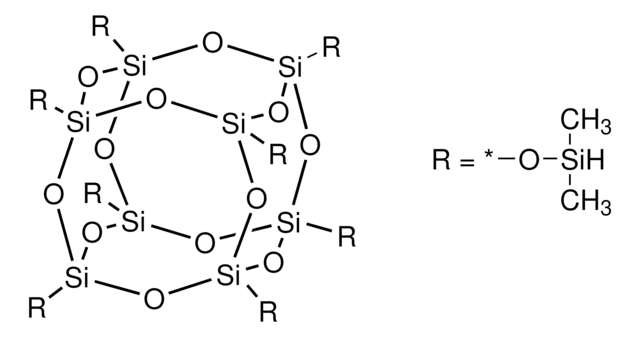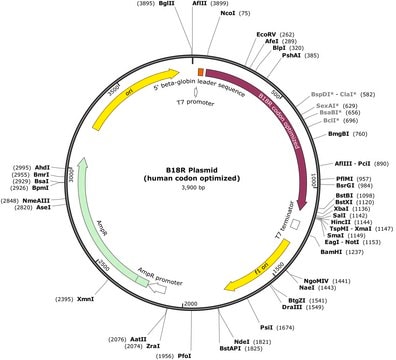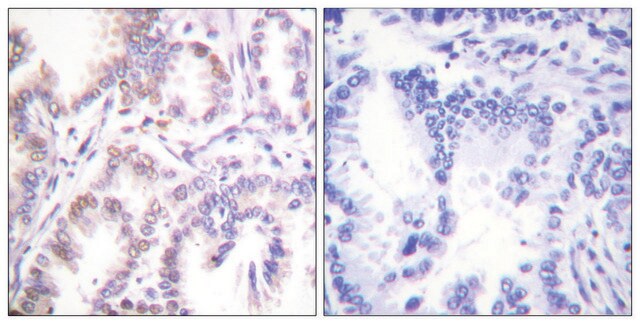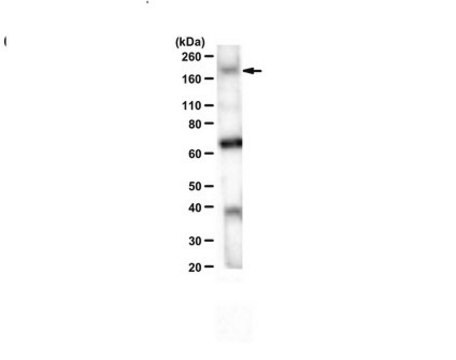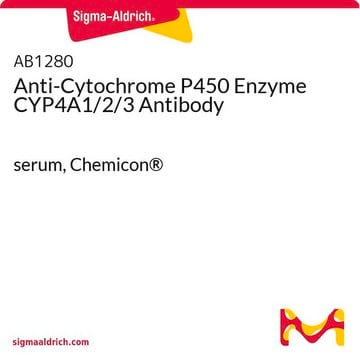ABE1861
Anti-CDK12 Antibody
from rabbit, purified by affinity chromatography
Synonym(s):
Cyclin-dependent kinase 12, CDC2-related protein kinase 7, Cdc2-related kinase, arginine/serine-rich, Cell division cycle 2-related protein kinase 7, Cell division protein kinase 12, CrkRS, hCDK12
About This Item
WB
western blot: suitable
Recommended Products
biological source
rabbit
Quality Level
antibody form
affinity isolated antibody
antibody product type
primary antibodies
clone
polyclonal
purified by
affinity chromatography
species reactivity
human
species reactivity (predicted by homology)
mouse (based on 100% sequence homology), rat (based on 100% sequence homology)
technique(s)
immunoprecipitation (IP): suitable
western blot: suitable
NCBI accession no.
UniProt accession no.
target post-translational modification
unmodified
Gene Information
human ... CDK12(51755)
General description
Specificity
Immunogen
Application
Western Blotting Analysis: A representative lot detected baculovirus expressed human CDK12 in lysates from infected Sf9 cells (Bartkowiak, B., and Greenleaf, A.L. (2015). J. Biol. Chem. 290(3):1786-1795).
Western Blotting Analysis: A representative lot detected CDK12 in HeLa nuclear extract, as well as RNAi-mediated CDK12 downregulation in HEK293T/17 cells (Schwartz, J.C., et al. (2012). Genes Dev. 26(24):2690-2695).
Immunoprecipitation Analysis: Representative lots immunoprecipitated CDK12 from HeLa nuclear extract (Bartkowiak, B., and Greenleaf, A.L. (2015). J. Biol. Chem. 290(3):1786-1795; Schwartz, J.C., et al. (2012). Genes Dev. 26(24):2690-2695).
Quality
Western Blotting Analysis: 2.0 µg/mL of this antibody detected CDK12 in 10 µg of HeLa nuclear extract.
Target description
Other Notes
Not finding the right product?
Try our Product Selector Tool.
Storage Class Code
12 - Non Combustible Liquids
WGK
WGK 1
Flash Point(F)
Not applicable
Flash Point(C)
Not applicable
Certificates of Analysis (COA)
Search for Certificates of Analysis (COA) by entering the products Lot/Batch Number. Lot and Batch Numbers can be found on a product’s label following the words ‘Lot’ or ‘Batch’.
Already Own This Product?
Find documentation for the products that you have recently purchased in the Document Library.
Our team of scientists has experience in all areas of research including Life Science, Material Science, Chemical Synthesis, Chromatography, Analytical and many others.
Contact Technical Service


